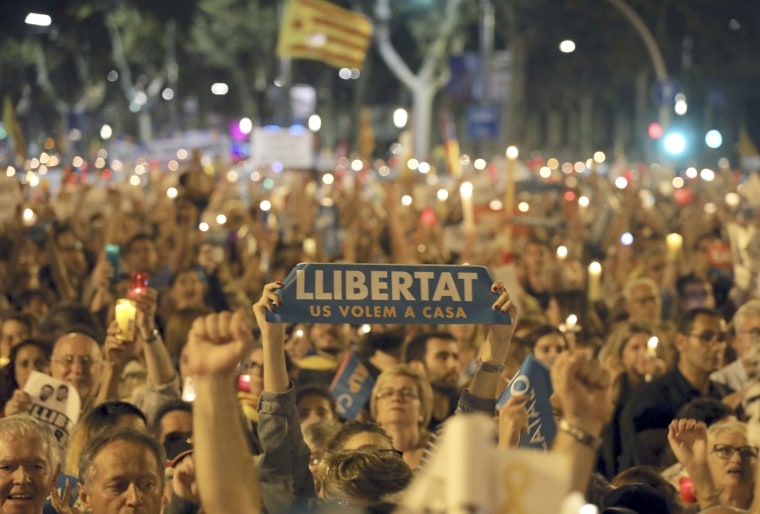BARCELONA, Spain — Spain said it would start the process of taking control of Catalonia on Saturday, after the region's leader threatened to declare independence if no talks with central government were offered.
Catalan President Carles Puigdemont issued the warning in a letter to Spanish Prime Minister Mariano Rajoy with minutes to spare before the expiration of a deadline set by the central government for him to backtrack on his calls for secession.
"If the central government persists in impeding dialogue and continuing its repression, Catalonia's parliament will proceed ... with a vote to formally declare independence," Puigdemont's letter said.
Spain then called a special Cabinet session to be held over the weekend to activate measures to take control of Catalonia's semi-autonomous powers.

The meeting would trigger the process to activate Article 155 of Spain's Constitution, which allows for central authorities to take over the semi-autonomous powers of any of the country's 17 regions, including Catalonia.
The Cabinet meeting will "approve the measures that will be sent to the Senate to protect the general interest of all Spaniards," the statement said. The measure has never been used in the four decades since democracy was restored at the end of Gen. Francisco Franco's dictatorship.
Spain's government needs to outline what are the exact measures it wants to apply in Catalonia and submit them for a vote in Spain's Senate.
The ruling Popular Party's majority in the top chamber would be enough to approve the measure, but Rajoy has held discussions with opposition leaders to rally further support.
Catalans would consider the application of the measure an "invasion" of the region's self-government, while Spain's central authorities have portrayed it as an undesired move, yet a necessary one, to restore legality after Puigdemont's government pushed ahead with a banned referendum that violated the country's constitution.
More than 40 percent of Catalonia's 5.5 million eligible voters cast ballots in the illegal Oct. 1 referendum as police used violence to try to enforce a court order to stop it from going ahead. Opponents boycotted the vote.
Catalan officials say that hundreds of people were injured in police violence, while Spanish authorities say hundreds of police officers were also hurt and the use of force was proportional to the resistance they met.
The separatists declared an overwhelming victory despite the boycott by opponents and on the grounds that it was illegal and lacked basic guarantees such as an independent electoral board.
Spain's government had said it would be willing to hold off on applying Article 155 if the Catalan separatist leader were to call a snap regional election. But Catalan officials have ruled that out.